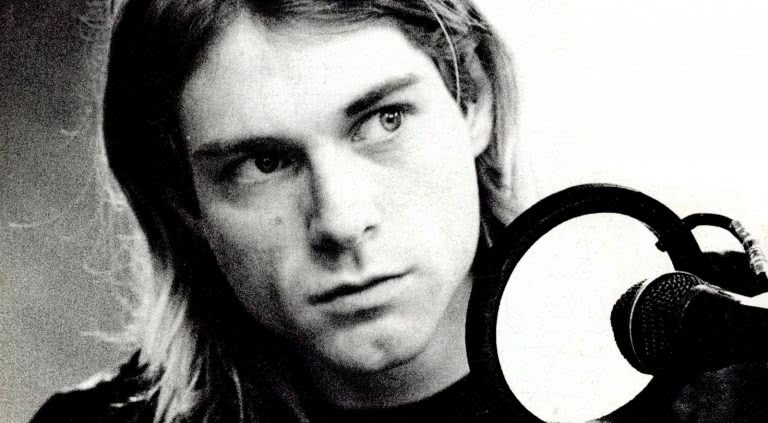Kurt Cobain is set to release his debut solo album this month. It’s been a highly anticipated return for Cobain, with many fans fearing that his 1994 death spelled an end to his music career. But after a near 20-year absence, Cobain has returned – eat your heart out, Avalanches.
It’s been a big year for the Nirvana frontman. The high-profile documentary Montage Of Heck was released, providing an insight into the enigmatic rock star, as well as the more controversial (semi-)documentary Soaked In Bleach, which explored the conspiracy theories surrounding his death.
The new album, released as an accompaniment toMontage Of Heck, is described as an inside look into one of the greatest minds of the 1990s. But what it feels like is an invasion of privacy, and it’s kinda gross.
Let’s ignore the fact the album cover looks like the new single from a fading mid-2000s emo band and focus on what’s inside. Montage Of Heck: The Home Recordings is exactly what it says on the box; a series of demos that Cobain recorded in his house. The deluxe edition goes one further, with 31 tracks that range from spoken-word recordings to demos and instrumental tracks.
The posthumous album is not an inherently evil concept. Many artists are prolific in their day, and have enough recorded material to have records released after they pass away. But this doesn’t feel like a posthumous album – these are songs that Cobain had no intention of releasing to the public. This isn’t some great unfinished masterpiece; it’s scraps from the attic.
What does a home recording of Cobain, half-heartedly strumming out a Beatles cover, add to the legacy of Nirvana? Does this new album improve our understanding of a group that has already been written into the history books as one of the greatest rock bands ever? The best this release can do is not tarnish a legacy.
—
Nirvana have, by and large, been pretty good at protecting the band. You’re not going to hear ‘Heart-Shaped Box’ in the new Adam Sandler movie, but 20 years on, teenagers around the world are still clinging to the music. In 1997, Dave Grohl, Krist Novoselic and Courtney Love formed a company in order to oversee all Nirvana-related projects, to keep the band’s legacy what it was and is. In 2001, Love ended up suing to dissolve the company, claiming that Grohl and Novoselic were merely sidemen to Cobain.
The case was eventually settled, which led to the release of Nirvana; a compilation album that featured a previously unrecorded song called ‘You Know You’re Right’ – the last song recorded before Cobain’s death and arguably one of their finest.
In 2002, Journals was published: a coffee table book that was literally pages from Cobain’s personal journals. Everything from mixtapes and drawings, to shopping lists and letters, were published in hardcover and paperback for the world to see. Cobain’s suicide note has also, infamously, been published.
Montage Of Heck: The Home Recordings is the next chapter in the gross intrusion into Cobain’s life.
And it’s not just the thoughts and ideas of Cobain’s that are available for purchase. If your wallet is a little larger, you can own his possessions, too! Recently the cardigan that Cobain wore during the MTV Unplugged In New York concert went up for auction. It’s expected to score somewhere between US$40,000-60,000, and comes with a signed letter of authenticity and a genuine burn hole.
That isn’t all that’s available for the Kurt Cobain memorabilia collector. Recently up for auction was the frontman’s own Visa credit card (the back is ‘autographed’, of course), some letters written to Courtney Love and MTV, and most importantly of all – a lock of his hair:

The spiky-haired teenagers with holes in their clothes that had their lives changed by ‘Smells Like Teen Spirit’ are all grown up and have money to burn. Pair this with each following generation falling in love with Nirvana, and we have a fascination with Kurt Cobain that is still as feverish as it was in 1994.
In a record industry that is crumbling, it’s still easy to get some money out of an old favourite. Even if it involves a gross invasion of their privacy.
Kurt Cobain was by all reports a very private person, and one that didn’t appreciate the ruthlessness of the music industry. It’s rude to speculate on his feelings, but maybe Cobain didn’t want you to hear him mumble into a tape recorder.
But if the payday is right, the Cobain estate will gladly release it.


































